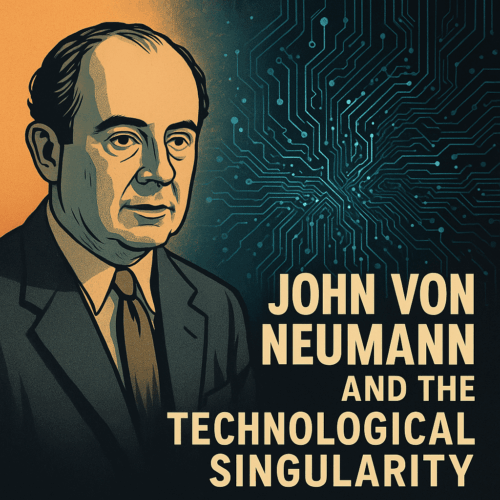Can Consciousness Be Uploaded?
Daniel Faggella / Op Ed
Posted on: December 3, 2015 / Last Modified: December 3, 2015
 In Arthur C. Clarke’s 1956 novel, The City and the Stars, the residents of Diaspar have their minds stored as information patterns in the city’s Central Computer as they go between lives in cloned bodies. While Clarke’s concept of mind uploading was set a billion years in the future, in a recent interview, author, computer scientist and Artificial Intelligence Scholar Dr. Keith Wiley says actual mind uploading could become a reality much sooner.
In Arthur C. Clarke’s 1956 novel, The City and the Stars, the residents of Diaspar have their minds stored as information patterns in the city’s Central Computer as they go between lives in cloned bodies. While Clarke’s concept of mind uploading was set a billion years in the future, in a recent interview, author, computer scientist and Artificial Intelligence Scholar Dr. Keith Wiley says actual mind uploading could become a reality much sooner.
Despite his definite belief that that we will one day be able to upload consciousness, Wiley qualifies his optimism by admitting that, in spite of a great deal of research, this potential reality is still a ways off. More progress has been made over the last decade, however, in the philosophical outlook.
“People have been trying to figure this out for awhile. From a research point of view, we haven’t figured it solidly yet, but we’re still figuring out how the brain works,” Wiley said. “From a philosophical view, the main lines of arguments have been advanced to some extent.”
Wiley cited John Searle’s biological theory of consciousness, where consciousness is a type of biological process that we can’t meaningfully conceive outside the biological system. He also noted that the work of Penrose and Hameroff, who (with no allusion to being for or against artificial consciousness) believe it requires a quantum phenomenon in order to produce consciousness. The larger discussion, he adds, usually centers around two questions, the first one being: Can consciousness occur or arise from non-biological systems like computers?
On a different train of thought, the second question is, can an individual person’s identity be re-associated with some other system such as a computer? “Those are separate questions,” Wiley said. “Maybe we can conceive that consciousness really can occur in computers. We can make artificial intelligence that is genuinely conscious and yet we still don’t take the position that any one person’s personality could ever move into a computer system. There are definitely professional, well respected scientists who don’t have the stance that either one of those systems (can occur).”
Wiley argues that one must assume we can replicate consciousness in a computer to make the leap to the idea that a person’s identity can be transferred. It follows then, that consciousness must be unstanchable to a computer in the first place, he said.
In defense of his position that consciousness can work in systems that are not like brains, Wiley notes that we don’t really know what consciousness is, and therefore can’t make the counter argument that uploading a consciousness is not possible. “Because we don’t currently understand how that process works, people often say that to even suggest it is relying on magic and superstition,” he says.
One of the prevailing theories is that consciousness, for reasons we don’t yet understand, emerges out of very complex information passing through networks, but that’s where the tangible concept ends. Even if we don’t know how consciousness works, there is a prevailing philosophical stance that it emanates from this chaotic exchange. Our lack of understanding, however, still creates some doubters.
One philosophical stance that Wiley is quick to rebut is the theory of substance dualism, which states that the brain also needs the soul for the mind to work and that, if you only have one part, you don’t have all the pieces. Given the degradations in neurological and psychological performance associated with brain injuries that we can now observe, and our ability to see how physiological behavior in MRI scans correlate with psychological or behavioral aspects of a subject, he said it’s perfectly clear that the brain is very closely associated with what we call the “mind” or “consciousness”.
Looking forward, Wiley said that, since we’re only at the beginning stages of mapping the brain, significant breakthroughs in mind uploading research are still in the distant future.
The bigger leaps will come from artificial intelligence, and that progress will benefit the larger brain research projects such as the Blue Brain Project, the White House BRAIN Initiative, and others.
“To make computers intelligent, you kinda’ gotta’ do it the way brains do it. The more capable artificial intelligence becomes, the larger role it’s going to play in our brain mapping projects,” Wiley said. “I think we’re just going to be throwing hordes of data at things like Watson to find the statistical interpretations (that will) tell us what is actually going on in the brain. I think AI is going to advance brain research and, in its own way, help bring about mind uploading somewhere down the road.”
About the Author:
 Dan Faggella is a graduate of UPENN’s Master of Applied Positive Psychology program, as well as a national martial arts champion. His work focuses heavily on emerging technology and startup businesses (TechEmergence.com), and the pressing issues and opportunities with augmenting consciousness. His articles and interviews with philosophers / experts can be found at SentientPotential.com
Dan Faggella is a graduate of UPENN’s Master of Applied Positive Psychology program, as well as a national martial arts champion. His work focuses heavily on emerging technology and startup businesses (TechEmergence.com), and the pressing issues and opportunities with augmenting consciousness. His articles and interviews with philosophers / experts can be found at SentientPotential.com
Related articles
- Mind Uploading and Identity
- The Final Moments of Karl Brant: Short Sci Fi Film about Mind Uploading
- Singularity 1 on 1: Randal Koene on the Ethics of Mind Uploading
- Randal Koene on Singularity 1 on 1: Mind Uploading is not Science Fiction









